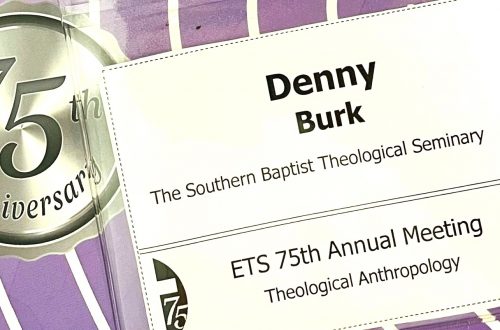 Joe Rigney has a lengthy piece at the Desiring God website reflecting on God’s Sovereignty and the problem of evil. The essay is, of course, written in light of recent events in Connecticut. Here’s a bit from the introduction:
Joe Rigney has a lengthy piece at the Desiring God website reflecting on God’s Sovereignty and the problem of evil. The essay is, of course, written in light of recent events in Connecticut. Here’s a bit from the introduction:
Does disaster befall a city unless the Lord has done it (Amos 3:6)? What about a school? I don’t say that lightly. I realize what I’m saying. Or rather, I know what the Scriptures are saying. I’ve wept with parents as they watched their child die slowly of an incurable disease. I’ve watched dementia rob me of my father, taunting me and my family with his slow death. I realize that confessing God’s absolute sovereignty over all things, including the pain in my lower back and the cruel disease stalking my dad and the horrific actions of a wicked man in Connecticut, is hard to fathom. But I’m not helped at all by removing God from the equation, by making him a spectator watching the tragedy unfold on CNN like the rest of us. If he can’t keep evil from happening on the front end, then how can he possibly bring us comfort on the back end?
Rigney goes on to assert the absolute sovereignty of God over all things while also affirming human moral responsibility. Rigney accesses an analogy—that God is the author of the story of history.
The analogy enables us to affirm, with the Bible, God’s total and exhaustive sovereignty over all things while refusing to minimize the moral significance of our decisions. Because just as the Bible is clear about the ‘all things’ that God governs according to his wise counsel, it is equally clear that we are completely and wholly responsible for our thoughts, intentions, and actions…
Of course, Christians who submit to Scripture will receive both strands of biblical teaching, regardless of whether the details and mechanics can be fully worked out and comprehended. But then, having embraced the teaching of the whole Bible, we can seek to press into God’s ways, laboring to understand what we have believed.
Read the rest here.



